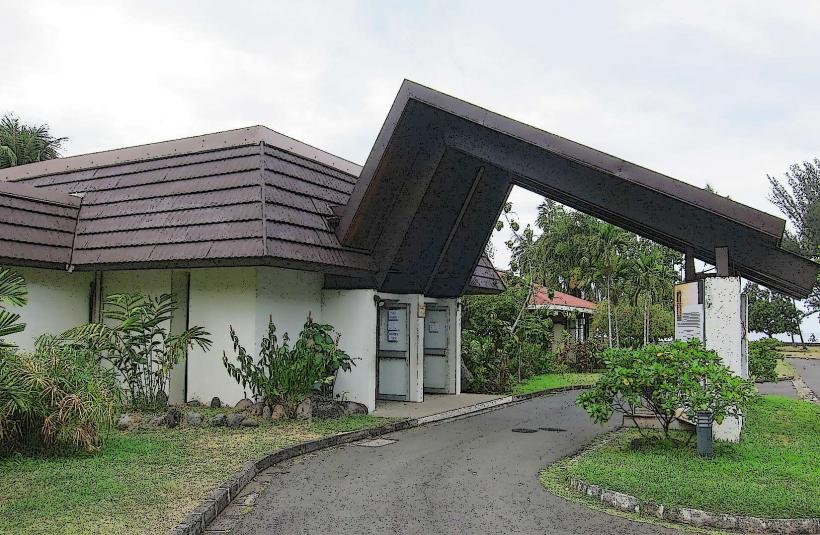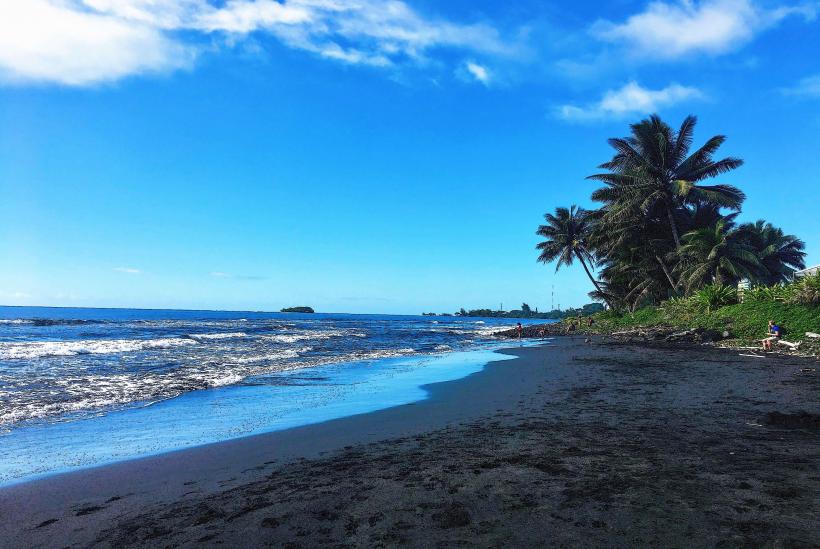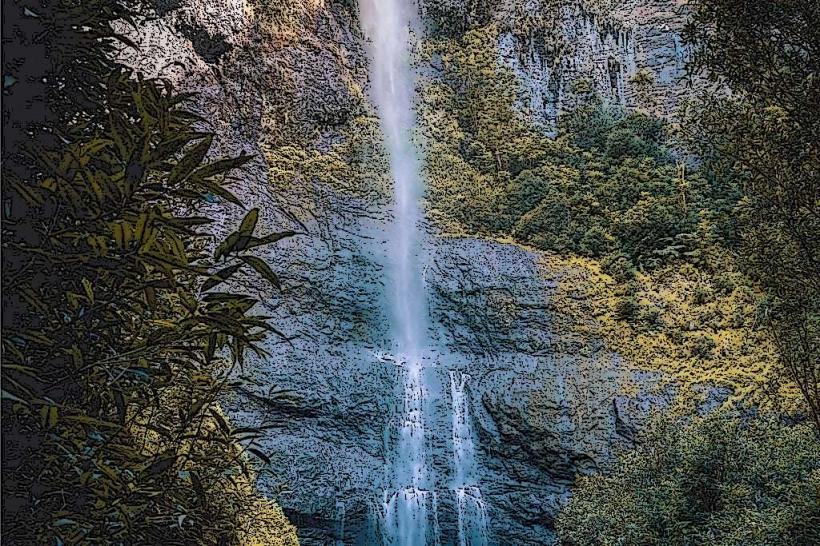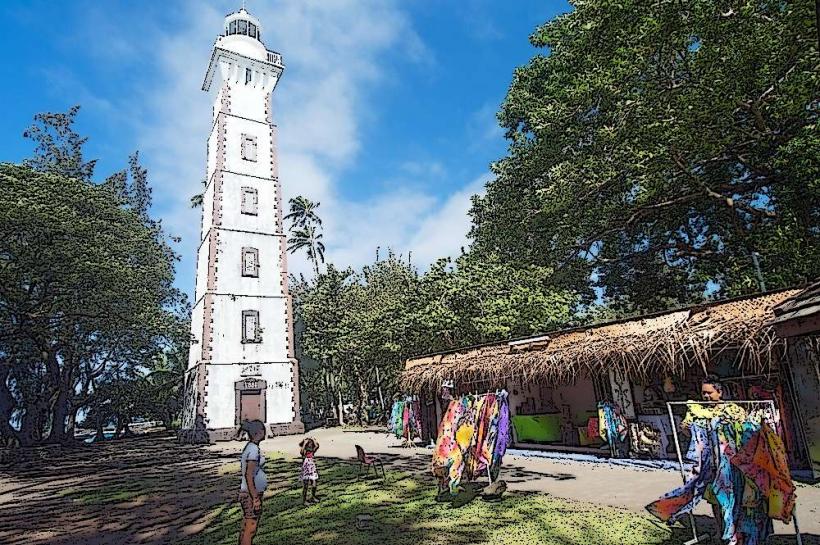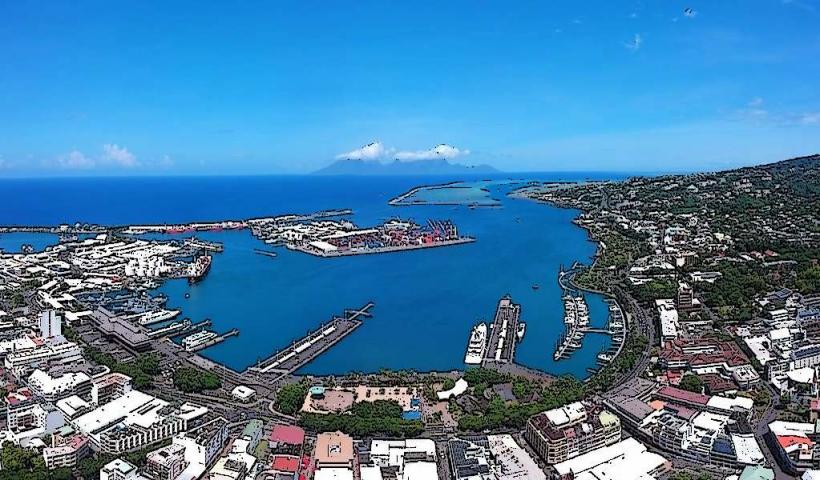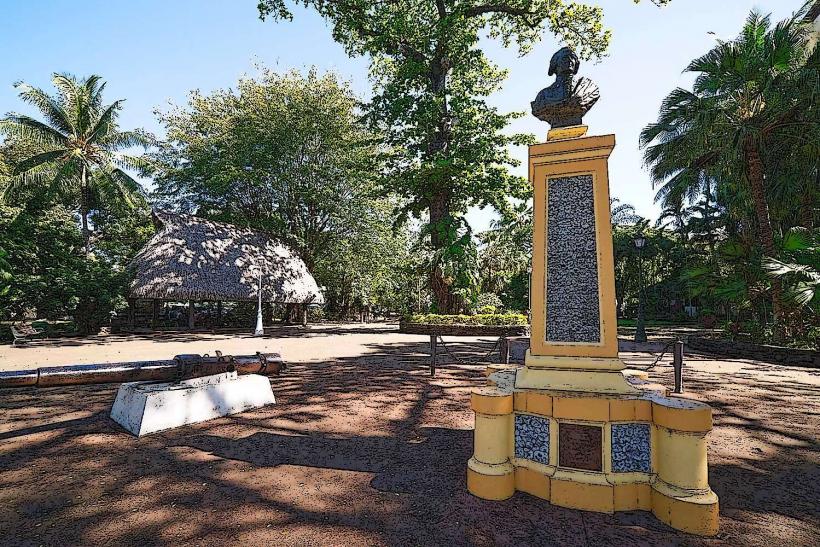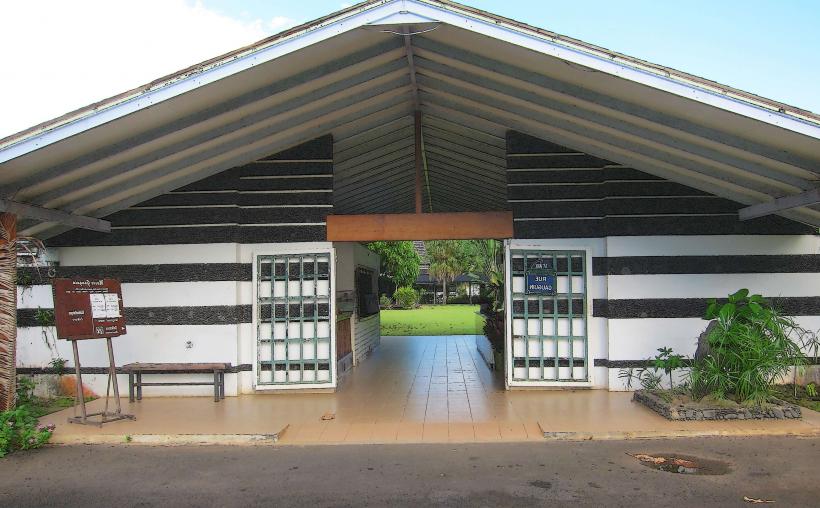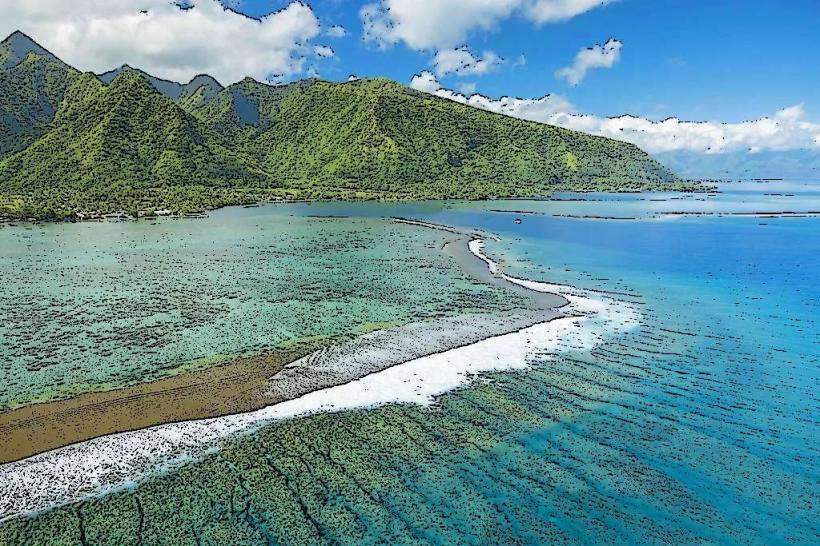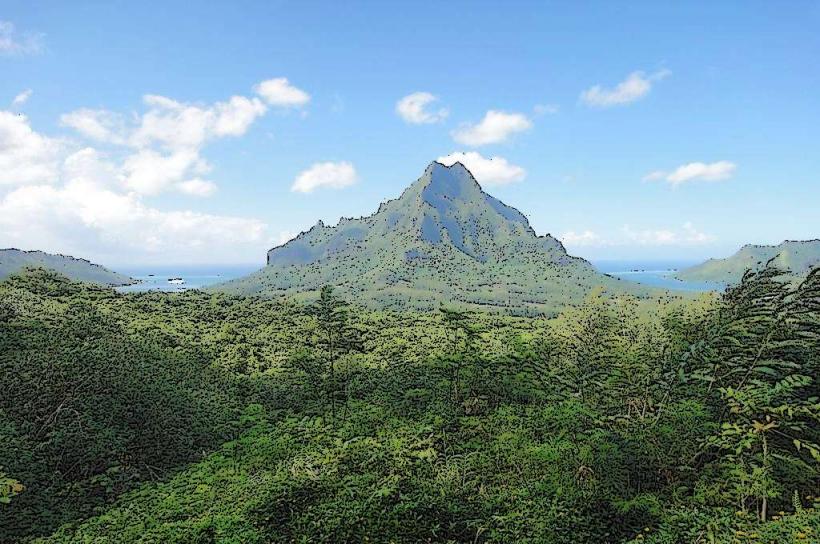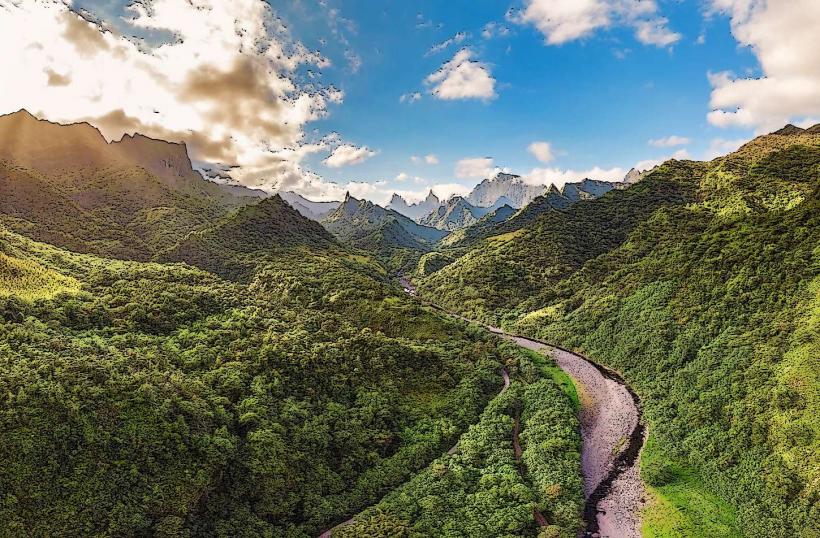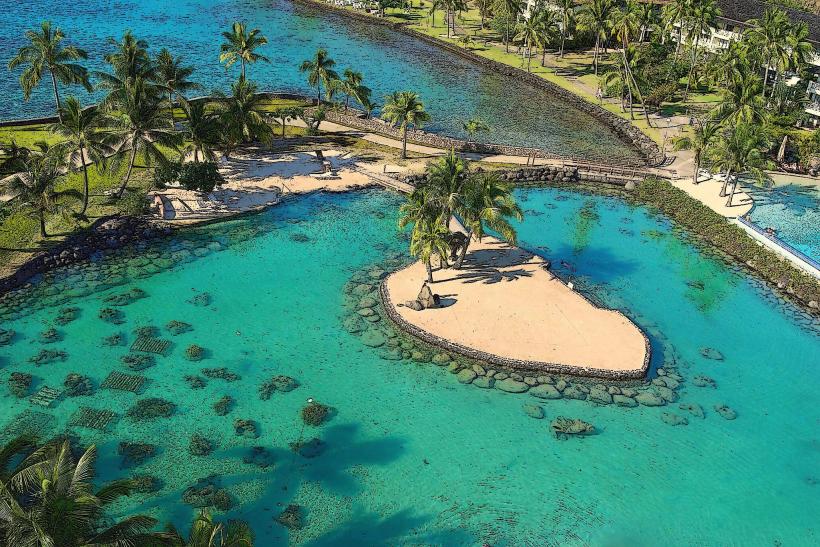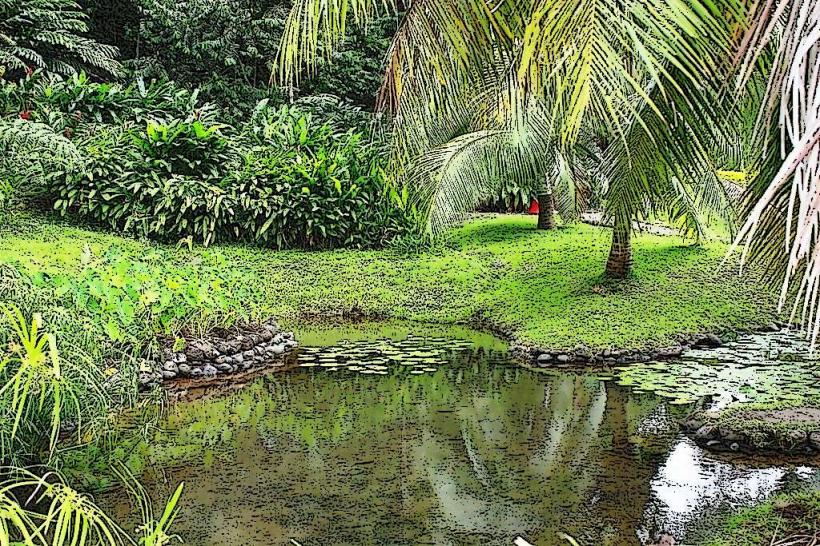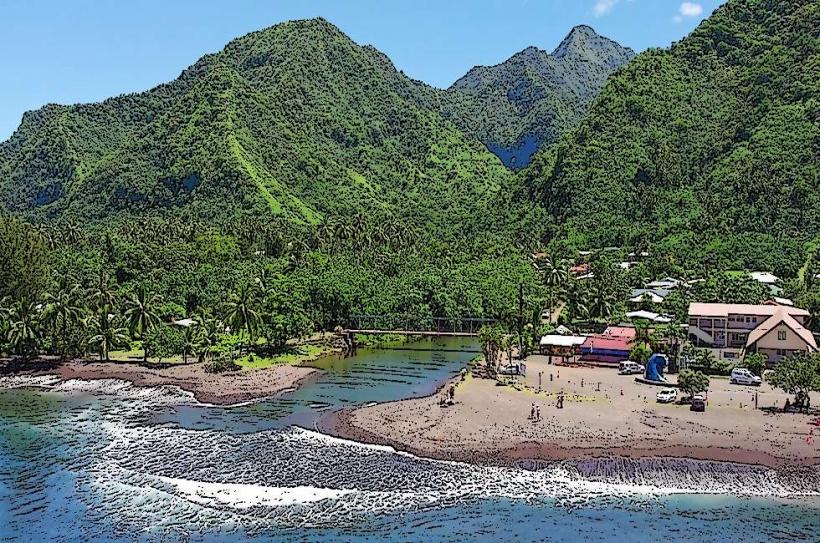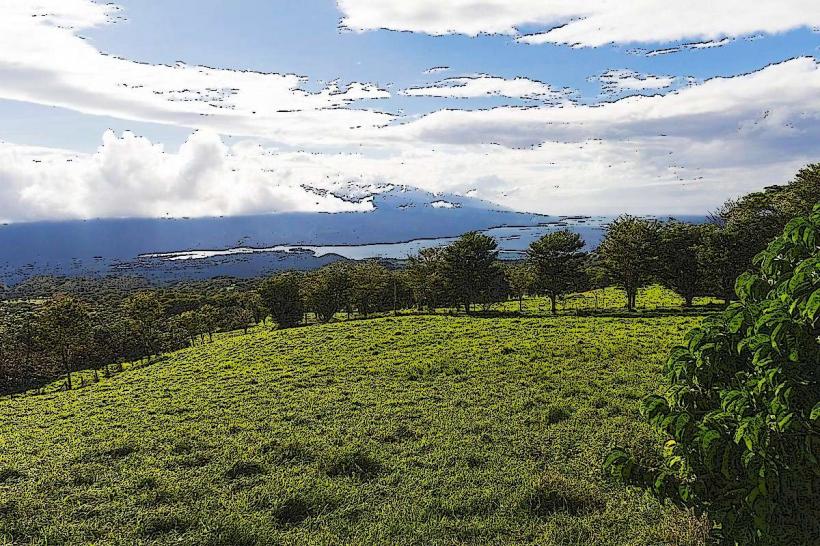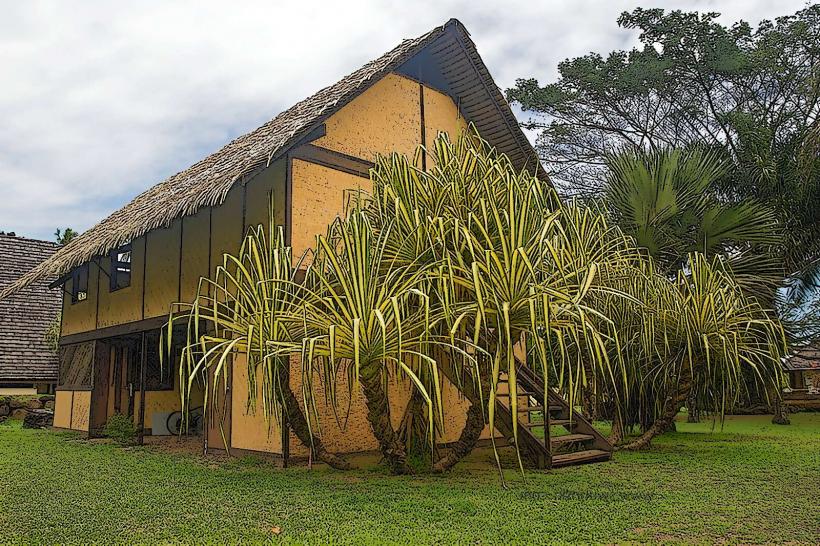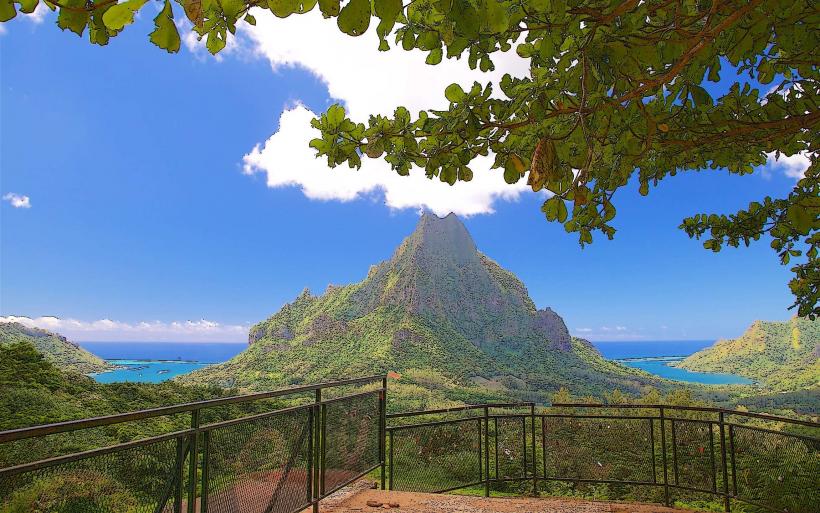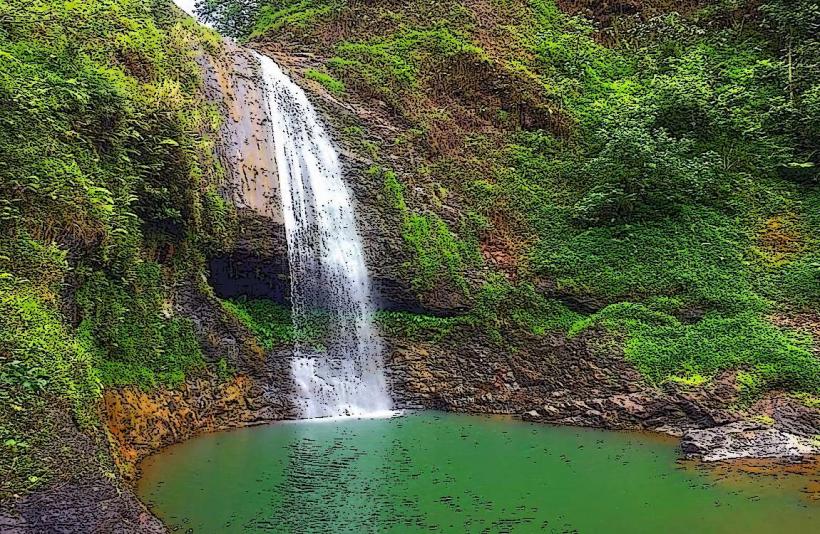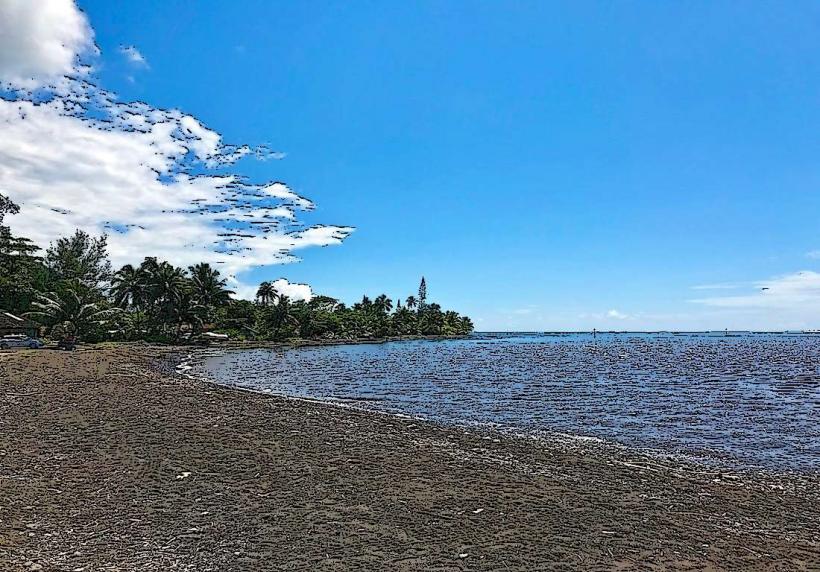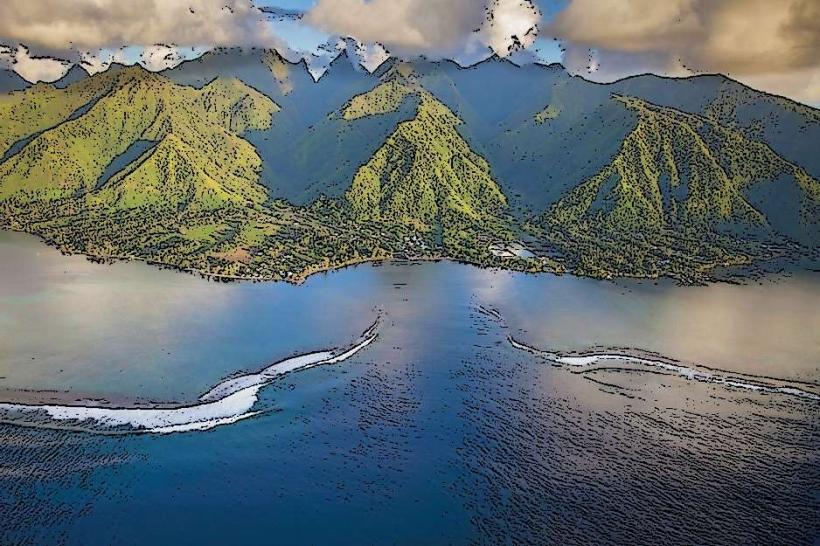Information
Landmark: Arahurahu MaraeCity: Tahiti
Country: French Polynesia
Continent: Australia
Arahurahu Marae, Tahiti, French Polynesia, Australia
Arahurahu Marae is a significant and well-preserved traditional Polynesian temple (marae) located on the island of Tahiti, French Polynesia. This ancient cultural site offers visitors a glimpse into Tahitian history, spirituality, and architecture, providing insight into the indigenous culture of Tahiti and the broader Polynesian region. Here's a detailed look at Arahurahu Marae:
1. Overview and History
- Cultural Importance: Arahurahu Marae is one of the most notable marae on Tahiti. Marae are sacred ceremonial sites used by Polynesian communities for religious rituals, ceremonies, and gatherings. These stone platforms were often the centers of social and spiritual life in ancient Polynesia.
- Name: The name Arahurahu translates roughly to "the sacred gathering place," reflecting the marae's historical role as a focal point for religious and community activities.
- Historical Significance: Arahurahu Marae is believed to have been constructed around the 17th century. It was used by the Tahitian people for various rituals, including sacrifices, offerings, and ceremonies dedicated to their gods. The site also served as a political and social hub, where chiefs and community leaders would gather to make important decisions.
2. Location
- Geographical Setting: Arahurahu Marae is situated on the northwestern coast of Tahiti, near the village of Punaauia, about 17 kilometers (10.5 miles) from Papeete, the capital of French Polynesia. The site is nestled within the lush tropical landscape of Tahiti, surrounded by green hills and scenic views of the ocean.
- Access: The marae is easily accessible by car from Papeete, with well-maintained roads leading to the site. Visitors can reach the marae through a short drive along the main highway on the island. While the site is open to the public, it is recommended to visit with a local guide who can provide historical and cultural context for the site.
3. Architecture and Layout
- Sacred Platform: At the heart of Arahurahu Marae is a rectangular platform made of large, flat stones, which served as the central space for rituals and ceremonies. This platform is aligned with Polynesian religious and cosmological beliefs, often positioned to face the rising sun or other celestial bodies, which were important in Polynesian spirituality.
- Marae Structure: The platform is surrounded by a stone wall, which encircles the ceremonial area and is an important feature of the marae's design. The walls were typically built using large stones, stacked without mortar, showcasing the skill of Polynesian builders.
- Ahurea (Sacred Rocks): The marae also features several large sacred stones or ahurea, which were used for offering rituals and prayers to the gods. These stones, often placed in specific patterns, represent the spiritual connection between the people and their deities.
- Carved Stones: The stonework at Arahurahu Marae is particularly noteworthy, with carvings on some of the stones that depict Polynesian motifs and symbols. These carvings provide insight into the artistic traditions and beliefs of the early Polynesians.
4. Cultural and Religious Significance
- Ceremonial Functions: The marae was a place of important rituals in ancient Tahitian society. It was used for offerings to gods, especially to the god of war and the god of fertility, among others. Sacrifices (often of food, goods, or occasionally animals) were made to honor the gods and ensure the prosperity of the people.
- Political Role: Besides its religious significance, the marae also had a political function. Chiefs, or arii, would meet at the marae to discuss important matters, and it often served as a place for social gatherings, decisions, and announcements within the community.
- Spiritual Symbolism: In Polynesian culture, the marae was not just a physical space, but a spiritual one, representing the relationship between humans, nature, and the divine. The architecture of the marae reflects this spiritual connection, with its alignment to the natural world and celestial bodies.
5. Restoration and Preservation
- Conservation Efforts: Arahurahu Marae is one of the most well-preserved marae on Tahiti. The site has undergone careful restoration efforts over the years to ensure that it remains in good condition for future generations. These efforts have included the preservation of the original stonework and the careful reconstruction of the sacred platform and surrounding walls.
- Tourist Access: Today, Arahurahu Marae is open to tourists and is a popular destination for those interested in the history and culture of Polynesia. The site is maintained by local authorities, and there are efforts to educate visitors about the cultural significance of the site and the role of marae in traditional Polynesian society.
6. Visiting Arahurahu Marae
- Guided Tours: While the site is open to visitors, it is highly recommended to explore the marae with a local guide who can provide detailed explanations of the site’s history, significance, and the rituals that were once practiced there. Guides can offer insights into the symbolic meanings behind the stones, the layout, and the religious practices that took place.
- Visitor Experience: The site is relatively small and can be explored in about an hour. Visitors can walk around the platform, admire the carved stones, and learn about the role of the marae in Tahitian culture. The peaceful surroundings and the beautiful natural environment make it a serene place for reflection and appreciation of Polynesian heritage.
- Cultural Events: Occasionally, the marae is used for traditional cultural events and ceremonies, including dance and music performances that honor Polynesian traditions. These events offer visitors a unique opportunity to experience the living culture of Tahiti.
7. Nearby Attractions
- Punaauia Beach: A short distance from the marae, Punaauia Beach is a popular spot for relaxation and enjoying the stunning beaches of Tahiti. Visitors can enjoy swimming, snorkeling, or simply lounging by the water.
- Faarumai Waterfalls: Located nearby, the Faarumai Waterfalls offer a beautiful natural setting for hiking and exploring Tahiti’s lush interior. The falls are one of the island’s more scenic hiking spots, with several waterfalls along the route.
- Museum of Tahiti and the Islands: This museum, located near the marae, offers a deep dive into the history, culture, and natural environment of Tahiti and the larger Polynesian region. It provides context for understanding the cultural practices that took place at sites like Arahurahu Marae.
8. Practical Information
- Opening Hours: Arahurahu Marae is open year-round, and it is typically accessible to visitors during the day. It is advisable to check the opening hours or visit as part of a guided tour.
- Admission: There may be a small entrance fee for visitors to access the marae, though this fee is typically used to help maintain the site. Some tour operators may also include the site as part of a larger cultural tour of the island.
- What to Bring: Visitors should bring comfortable walking shoes for exploring the site and may want to carry sunscreen and water due to the tropical climate of Tahiti.
Conclusion
Arahurahu Marae offers visitors a fascinating opportunity to explore an ancient and sacred Polynesian site that is rich in history, spirituality, and cultural significance. As one of the best-preserved marae in Tahiti, it provides an immersive experience into the traditions of Polynesia, showcasing the architecture, rituals, and customs that once played a central role in the lives of the Tahitian people. Whether you're interested in history, architecture, or Polynesian spirituality, Arahurahu Marae is a must-visit destination that provides valuable insight into Tahiti's cultural heritage.



